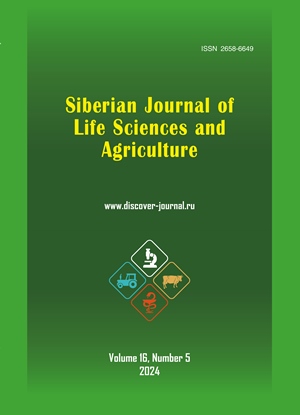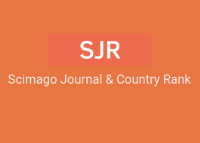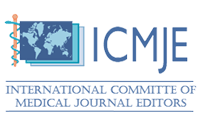ИЗУЧЕНИЕ МНОГОСТОРОННИХ ПОДХОДОВ К ТЕРАПИИ РАССТРОЙСТВ АУТИСТИЧЕСКОГО СПЕКТРА: ИНТЕГРАЦИЯ КИШЕЧНОГО МИКРОБИОМА, ДИЕТЫ И АДАПТОГЕНОВ
Аннотация
Обоснование. Расстройство аутического спектра (РАС), сложное заболевание нервной системы, которое демонстрирует разнообразные социальные, коммуникативные, и поведенческие особенности. Изучение генетических, экологических и физиологических факторов раскрывает гетерогенную природу РАС. Последние исследования выходят за рамки традиционных аспектов, подчеркивая роль кишечного микробиома, влияния диеты и адаптогенов в понимании и лечении РАС.
Материалы и методы. Данный обзор объединяет сведения из нейронауки, микробиологии и нутрициологии посредством анализа рецензируемых исследований и клинических испытаний. Цель исследования состоит в том, чтобы изучить механизм действия адаптогенов и оценить их использование в диетотерапии при РАС.
Результаты. Связь кишечник-мозг, в которой особое значение придается микробным метаболитам, таким как короткоцепочечные жирные кислоты, влияет на развитие нервной системы. Диетотерапия, включающая безглютеновую, безказеиновую, средиземноморскую и кетогенную диеты, модулирует кишечный микробиом и формирует конкретное поведение при РАС. На основе новых исследований свойств адаптогенов мы можем предположить их влияние на модуляцию реакции на стресс и нейропротекцию.
Заключение. Данный обзор подчеркивает важность сложной взаимосвязи питания и здоровья при РАС, и предлагает адаптогены в качестве альтернативных методов лечения. Однако, проблемы в стандартизации методологий сохраняются. Совместные усилия в изучении РАС имеют жизненно важное значение для преодоления гетерогенности заболевания и продвижения персонализированных, целостных подходов. Раскрытие тонкостей заболевания дает надежду на целенаправленные меры и улучшение результатов у людей c РАС.
Скачивания
Литература
References
Adams J. B., Audhya T., McDonough-Means S., Rubin R. A., Quig D., Geis E., ... & Gehn E. Nutritional and metabolic status of children with autism vs. neurotypical children, and the association with autism severity. Nutrition & Metabolism, 2011, vol. 8(1), 34. https://doi.org/10.1186/1743-7075-8-34
American Psychiatric Association. Diagnostic and statistical manual of mental disorders (5th ed.). 2013.
Bavykina I.A., Zvyagin A.A., Bavykin D.V. Soblyudenie dietoterapii, kak faktor izmeneniya pishhevogo povedeniya u detej s rasstrojstvami autisticheskogo spektra [Compliance with diet therapy as a factor in changing eating behavior in children with autism spectrum disorders]. Medicina: teoriya i praktika, 2019, no. 1, pp. 183-189.
Chandrasekhar K., Kapoor J., Anishetty S. A prospective, randomized double-blind, placebo-controlled study of safety and efficacy of a high-concentration full-spectrum extract of Ashwagandha root in reducing stress and anxiety in adults. Indian Journal of Psychological Medicine, 2012, vol. 34(3), pp. 255-262. https://doi.org/10.4103/0253-7176.106022
Chauhan A., Chauhan V., Brown W. T., Cohen I. Oxidative stress in autism: Increased lipid peroxidation and reduced serum levels of ceruloplasmin and transferring—The antioxidant proteins. Life Sciences, 2004, vol. 75(21), pp. 2539-2549. https://doi.org/10.1016/j.lfs.2004.04.038
Cohen M. M. Tulsi - Ocimum sanctum: A herb for all reasons. Journal of Ayurveda and Integrative Medicine, 2014, vol. 5(4), pp. 251–259. https://doi.org/10.4103/0975-9476.146554
Crupi R., Marino A., Cuzzocrea S. N-3 Fatty Acids: Role in Neurogenesis and Neuroplasticity. Current Medicinal Chemistry. Bentham Science Publishers Ltd., 2013. https://doi.org/10.2174/09298673113209990140
Evangeliou A., Vlachonikolis I., Mihailidou H., Spilioti M., Skarpalezou A., Makaronas N., ... & Liapi-Adamidou G. Application of a ketogenic diet in children with autistic behavior: pilot study. Journal of Child Neurology, 2003, vol. 18(2), pp. 113-118. https://doi.org/10.1177/08830738030180020501
Feng J., Shan L., Du L., Wang B., Li H., Wang W., Wang T., et al. Clinical Improvement Following Vitamin D3 Supplementation in Autism Spectrum Disorder. Nutritional Neuroscience. Informa UK Limited, 2016. https://doi.org/10.1080/1028415x.2015.1123847
Ferranti R., Antoci M., Giorgianni G., Nolfo F., Rametta S., Currenti W., Matalone M., Mistretta A. Diet Quality Evaluated with the DQI-I and Adherence to the Mediterranean Diet in a Mediterranean Sample of Adolescents. Mediterranean Journal of Nutrition and Metabolism. IOS Press. 2016. https://doi.org/10.3233/mnm-160066
Fotuhi M., Mohassel P., Yaffe K. Fish consumption, long-chain omega-3 fatty acids and risk of cognitive decline or Alzheimer disease: a complex association. Nature Clinical Practice Neurology, 2009, vol. 5(3), pp. 140-152. https://doi.org/10.1038/ncpneuro1044
Geschwind D. H., State M. W. Gene hunting in autism spectrum disorder: on the path to precision medicine. The Lancet Neurology, 2015, vol. 14(11), pp. 1109-1120. https://doi.org/10.1016/S1474-4422(15)00044-7
Hsiao E. Y., McBride S. W., Hsien S., Sharon G., Hyde E. R., McCue T., ... & Mazmanian S. K. Microbiota modulate behavioral and physiological abnormalities associated with neurodevelopmental disorders. Cell., 2013, vol. 155(7), pp. 1451-1463. https://doi.org/10.1016/j.cell.2013.11.024
James S. J., Cutler P., Melnyk S., Jernigan S., Janak L., Gaylor D. W., Neubrander J. A. Metabolic biomarkers of increased oxidative stress and impaired methylation capacity in children with autism. The American Journal of Clinical Nutrition, 2004, vol. 80(6), pp. 1611-1617. https://doi.org/10.1093/ajcn/80.6.1611
Kim H. G., Cho J. H., Yoo S. R., Lee J. S., Han J. M., Lee N. H., ... & Shin I. S. Antifatigue effects of Panax ginseng C.A. Meyer: a randomised, double-blind, placebo-controlled trial. PLOS ONE, 2013, vol. 8(4), e61271. https://doi.org/10.1371/journal.pone.0061271
Klein P., Tyrlikova I., Mathews G. C. Dietary treatment in adults with refractory epilepsy: a review. Neurology, 2014, vol. 83(21), pp. 1978-1985. https://doi.org/10.1212/WNL.0000000000001004
Mayer E. A., Padua D., Tillisch K., Altered brain-gut axis in autism: comorbidity or causative mechanisms? BioEssays, 2014, vol. 36(10), pp. 933-939. https://doi.org/10.1002/bies.201400075
Mayer E. A., Tillisch K., Gupta A. Gut/brain axis and the microbiota. The Journal of Clinical Investigation, 2015, vol. 125(3), pp. 926-938. https://doi.org/10.1172/JCI76304
Mazahery H., Stonehouse W., Delshad M., Kruger M. C., Conlon C. A., Beck K. L., von Hurst P. R. Relationship between long chain n-3 polyunsaturated fatty acids and autism spectrum disorder: systematic review and meta-analysis of case-control and randomized controlled trials. Nutrients, 2017, vol. 9(2), 155. https://doi.org/10.3390/nu9020155
McCann J. C., Ames B. N. Is there convincing biological or behavioral evidence linking vitamin D deficiency to brain dysfunction? The FASEB Journal, 2008, vol. 22(4), pp. 982-1001. https://doi.org/10.1096/fj.07-9326rev
Morris M. C., Tangney C. C., Wang Y., Sacks F. M., Bennett D. A., Aggarwal N. T. MIND diet associated with reduced incidence of Alzheimer's disease. Alzheimer's & Dementia, 2015, vol. 11(9), pp. 1007-1014. https://doi.org/10.1016/j.jalz.2014.11.009
Moss M., Cook J., Wesnes K., Duckett P. Aromas of rosemary and lavender essential oils differentially affect cognition and mood in healthy adults. International Journal of Neuroscience, 2003, vol. 113(1), pp. 15-38. https://doi.org/10.1080/00207450390161903
Mozaffarian D., Rosenberg I., Uauy R. History of modern nutrition science—implications for current research, dietary guidelines, and food policy. BMJ, 2018, vol. 361, k2392. https://doi.org/10.1136/bmj.k2392
Pakpoor J., Seminatore B., Graves J. S., Schreiner T., Waldman A. T., Lotze T. E., ... & Oh J. Dietary factors and pediatric multiple sclerosis: A case-control study. Multiple Sclerosis Journal, 2018, vol. 24(13), pp. 1733-1740. https://doi.org/10.1177/1352458517713343
Panossian A., Wikman G. Effects of adaptogens on the central nervous system and the molecular mechanisms associated with their stress—protective activity. Pharmaceuticals, 2009, vol. 2(3), pp. 188-224. https://doi.org/10.3390/ph2030188
Panossian A., Wikman G. Evidence-based efficacy of adaptogens in fatigue, and molecular mechanisms related to their stress-protective activity. Current Clinical Pharmacology, 2009, vol. 4(3), pp. 198-219. https://doi.org/10.2174/157488409789375311
Potoroko I.Yu., Berebin M.A., Kalinina I.V., Ivanova D.G., Kiselova-Kaneva Y. Plant adaptogens in specialized food products as a Factor of homeostatic regulation involving microbiota. Chelovek. Sport. Medicina., 2018, vol. 18, no. 2, pp. 97-108. https://doi.org/10.14529/hsm180209
Thursby E., Juge N. Introduction to the human gut microbiota. Biochemical Journal, 2017, vol. 474(11), pp. 1823-1836. https://doi.org/10.1042/BCJ20160510
Wang L., Christophersen C. T., Sorich M. J., Gerber J. P., Angley M. T., Conlon M. A. Elevated fecal short chain fatty acid and ammonia concentrations in children with autism spectrum disorder. Digestive Diseases and Sciences, 2012, vol. 57(8), pp. 2096-2102. https://doi.org/10.1007/s10620-012-2167-7
Whiteley P., Rodgers J., Savery D., Shattock P. A Gluten-Free Diet as an Intervention for Autism and Associated Spectrum Disorders: Preliminary Findings. Autism, 1999, vol. 3(1), pp. 45–65. https://doi.org/10.1177/1362361399003001005
Yang R., Yuan B. C., Ma Y. S., Zhou S., Liu Y. The anti-inflammatory activity of licorice, a widely used Chinese herb. Pharmaceutical Biology, 2017, vol. 55(1), pp. 5-18. https://doi.org/10.1080/13880209.2016.1225775
Список литературы
Adams J. B., Audhya T., McDonough-Means S., Rubin R. A., Quig D., Geis E., ... & Gehn E. Nutritional and metabolic status of children with autism vs. neurotypical children, and the association with autism severity // Nutrition & Metabolism, 2011, vol. 8(1), 34. https://doi.org/10.1186/1743-7075-8-34
American Psychiatric Association. Diagnostic and statistical manual of mental disorders (5th ed.), 2013.
Бавыкина И.А. Соблюдение диетотерапии, как фактор изменения пищевого поведения у детей с расстройствами аутистического спектра / И.А. Бавыкина, А.А. Звягин, Д.В. Бавыкин // Медицина: теория и практика. 2019. №1. C. 183-189.
Chandrasekhar K., Kapoor J., Anishetty S. A prospective, randomized double-blind, placebo-controlled study of safety and efficacy of a high-concentration full-spectrum extract of Ashwagandha root in reducing stress and anxiety in adults // Indian Journal of Psychological Medicine, 2012, vol. 34(3), pp. 255-262. https://doi.org/10.4103/0253-7176.106022
Chauhan A., Chauhan V., Brown W. T., Cohen I. Oxidative stress in autism: Increased lipid peroxidation and reduced serum levels of ceruloplasmin and transferring—The antioxidant proteins // Life Sciences, 2004, vol. 75(21), pp. 2539-2549. https://doi.org/10.1016/j.lfs.2004.04.038
Cohen M. M. Tulsi - Ocimum sanctum: A herb for all reasons // Journal of Ayurveda and Integrative Medicine, 2014, vol. 5(4), pp. 251–259. https://doi.org/10.4103/0975-9476.146554
Crupi R., Marino A., Cuzzocrea S. N-3 Fatty Acids: Role in Neurogenesis and Neuroplasticity. // Current Medicinal Chemistry. Bentham Science Publishers Ltd, 2013, vol. 20 (24). https://doi.org/10.2174/09298673113209990140
Evangeliou A., Vlachonikolis I., Mihailidou H., Spilioti M., Skarpalezou A., Makaronas N., ... & Liapi-Adamidou G. Application of a ketogenic diet in children with autistic behavior: pilot study // Journal of Child Neurology, 2003, vol. 18(2), pp. 113-118. https://doi.org/10.1177/08830738030180020501
Feng J., Shan L., Du L., Wang B., Li H., Wang W., Wang T., et al. Clinical Improvement Following Vitamin D3 Supplementation in Autism Spectrum Disorder. // Nutritional Neuroscience. Informa UK Limite, 2016, vol. 20(5), pp. 284-290. https://doi.org/10.1080/1028415x.2015.1123847
Ferranti R., Antoci M., Giorgianni G., Nolfo F., Rametta S., Currenti W., Matalone M., Mistretta A. Diet Quality Evaluated with the DQI-I and Adherence to the Mediterranean Diet in a Mediterranean Sample of Adolescents // Mediterranean Journal of Nutrition and Metabolism. IOS Press, 2016. https://doi.org/10.3233/mnm-160066
Fotuhi M., Mohassel P., Yaffe K. Fish consumption, long-chain omega-3 fatty acids and risk of cognitive decline or Alzheimer disease: a complex association // Nature Clinical Practice Neurology, 2009, vol. 5(3), pp. 140-152. https://doi.org/10.1038/ncpneuro1044
Geschwind D. H., State M. W. Gene hunting in autism spectrum disorder: on the path to precision medicine // The Lancet Neurology, 2015, vol. 14(11), pp. 1109-1120. https://doi.org/10.1016/S1474-4422(15)00044-7
Hsiao E. Y., McBride S. W., Hsien S., Sharon G., Hyde E. R., McCue T., ... & Mazmanian S. K. Microbiota modulate behavioral and physiological abnormalities associated with neurodevelopmental disorders // Cell, 2013, vol. 155(7), pp. 1451-1463. https://doi.org/10.1016/j.cell.2013.11.024
James S. J., Cutler P., Melnyk S., Jernigan S., Janak L., Gaylor D. W., Neubrander J. A. Metabolic biomarkers of increased oxidative stress and impaired methylation capacity in children with autism // The American Journal of Clinical Nutrition, 2004, vol. 80(6), pp.1611-1617. https://doi.org/10.1093/ajcn/80.6.1611
Kim H. G., Cho J. H., Yoo S. R., Lee J. S., Han J. M., Lee N. H., ... & Shin I. S. Antifatigue effects of Panax ginseng C.A. Meyer: a randomised, double-blind, placebo-controlled trial // PLOS ONE, 2013, vol. 8(4), e61271. https://doi.org/10.1371/journal.pone.0061271
Klein, P., Tyrlikova, I., & Mathews, G. C. Dietary treatment in adults with refractory epilepsy: a review // Neurology, 2014, vol. 83(21), pp. 1978-1985. https://doi.org/10.1212/WNL.0000000000001004
Mayer E. A., Padua D., Tillisch K., Altered brain-gut axis in autism: comorbidity or causative mechanisms? // BioEssays, 2014, vol. 36(10), pp. 933-939. https://doi.org/10.1002/bies.201400075
Mayer E. A., Tillisch K., Gupta A. Gut/brain axis and the microbiota // The Journal of Clinical Investigation, 2015, vol. 125(3), pp. 926-938. https://doi.org/10.1172/JCI76304
Mazahery H., Stonehouse W., Delshad M., Kruger M. C., Conlon C. A., Beck K. L., von Hurst P. R. Relationship between long chain n-3 polyunsaturated fatty acids and autism spectrum disorder: systematic review and meta-analysis of case-control and randomized controlled trials // Nutrients, 2017, vol. 9(2), pp. 155. https://doi.org/10.3390/nu9020155
McCann J. C., Ames B. N. Is there convincing biological or behavioral evidence linking vitamin D deficiency to brain dysfunction? // The FASEB Journal, 2008, vol. 22(4), pp. 982-1001. https://doi.org/10.1096/fj.07-9326rev
Morris M. C., Tangney C. C., Wang Y., Sacks F. M., Bennett D. A., Aggarwal N. T. MIND diet associated with reduced incidence of Alzheimer's disease // Alzheimer's & Dementia, 2015, vol. 11(9), pp. 1007-1014. https://doi.org/10.1016/j.jalz.2014.11.009
Moss M., Cook J., Wesnes K., Duckett P. Aromas of rosemary and lavender essential oils differentially affect cognition and mood in healthy adults // International Journal of Neuroscience, 2003, vol. 113(1), pp. 15-38. https://doi.org/10.1080/00207450390161903
Mozaffarian D., Rosenberg I., Uauy R. History of modern nutrition science—implications for current research, dietary guidelines, and food policy // BMJ. 2018, 361, k2392. https://doi.org/10.1136/bmj.k2392
Pakpoor J., Seminatore B., Graves J. S., Schreiner T., Waldman A. T., Lotze T. E., ... & Oh J. Dietary factors and pediatric multiple sclerosis: A case-control study // Multiple Sclerosis Journal, 2018, vol. 24(13), pp. 1733-1740. https://doi.org/10.1177/1352458517713343
Panossian A., Wikman G. Effects of adaptogens on the central nervous system and the molecular mechanisms associated with their stress—protective activity // Pharmaceuticals, 2009, vol. 2(3), pp. 188-224. https://doi.org/10.3390/ph2030188
Panossian A., Wikman G. Evidence-based efficacy of adaptogens in fatigue, and molecular mechanisms related to their stress-protective activity // Current Clinical Pharmacology, 2009, vol. 4(3), pp. 198-219. https://doi.org/10.2174/157488409789375311
Potoroko I.Yu., Berebin M.A., Kalinina I.V., Ivanova D.G., Kiselova-Kaneva Y. Plant adaptogens in specialized food products as a Factor of homeostatic regulation involving microbiota // Человек. Спорт. Медицина. 2018. №2. C. 97-108. https://doi.org/10.14529/hsm180209
Thursby E., Juge N. Introduction to the human gut microbiota // Biochemical Journal, 2017, vol. 474(11), pp. 1823-1836. https://doi.org/10.1042/BCJ20160510
Wang L., Christophersen C. T., Sorich M. J., Gerber J. P., Angley M. T., Conlon M. A. Elevated fecal short chain fatty acid and ammonia concentrations in children with autism spectrum disorder // Digestive Diseases and Sciences, 2012; vol. 57(8), pp. 2096-2102. https://doi.org/10.1007/s10620-012-2167-7
Whiteley P., Rodgers J., Savery D., Shattock P. A Gluten-Free Diet as an Intervention for Autism and Associated Spectrum Disorders: Preliminary Findings // Autism, 1999, vol. 3(1), pp. 45–65. https://doi.org/10.1177/1362361399003001005
Yang R., Yuan B. C., Ma Y. S., Zhou S., Liu Y. The anti-inflammatory activity of licorice, a widely used Chinese herb // Pharmaceutical Biology, 2017, vol. 55(1), pp. 5-18. https://doi.org/10.1080/13880209.2016.1225775
Просмотров аннотации: 270
Copyright (c) 2024 Subhrajit Barua, Daria A. Fomicheva, Natalia V. Iakovchenko

Это произведение доступно по лицензии Creative Commons «Attribution-NonCommercial-NoDerivatives» («Атрибуция — Некоммерческое использование — Без производных произведений») 4.0 Всемирная.

























































